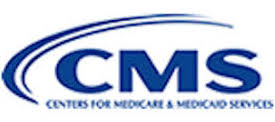Medicaid DSH Delay Advances in Energy and Commerce Committee
Medicaid disproportionate share cuts would be delayed for two years under a proposal advanced last week by the Health Subcommittee of the House Energy and Commerce Committee.
 The Medicaid DSH cuts, mandated by the Affordable Care Act, have already been delayed three times by Congress and could be on their way to a fourth delay if the proposal advanced by the Health Subcommittee is endorsed by the Energy and Commerce Committee and works its way to the full House of Representatives, where such a proposal is thought to enjoy wide support.
The Medicaid DSH cuts, mandated by the Affordable Care Act, have already been delayed three times by Congress and could be on their way to a fourth delay if the proposal advanced by the Health Subcommittee is endorsed by the Energy and Commerce Committee and works its way to the full House of Representatives, where such a proposal is thought to enjoy wide support.
The Safety-Net Association of Pennsylvania supports this delay of Medicaid DSH cuts. Earlier this year, SNAP asked members of the state’s congressional delegation to join a campaign in the House of Representatives to delay this cut.
Learn more about the possibility of another delay of Medicaid DSH cuts in the HealthLeaders article “House Panel Advances Surprise Bill Package.”
 According to the post, social determinants of health – income, education, decent housing, access to food, and more – significantly influence the health and well-being of individuals – including low-income individuals who have adequate access to quality health care. Medicaid, the post maintains, can play a major role in addressing social determinants of health.
According to the post, social determinants of health – income, education, decent housing, access to food, and more – significantly influence the health and well-being of individuals – including low-income individuals who have adequate access to quality health care. Medicaid, the post maintains, can play a major role in addressing social determinants of health. Initiatives to be introduced in the coming months include (as described in the blog post):
Initiatives to be introduced in the coming months include (as described in the blog post): The requirement itself is not new; the purpose of the memorandum is to encourage federal agencies to enforce existing laws that state that, according to the memorandum,
The requirement itself is not new; the purpose of the memorandum is to encourage federal agencies to enforce existing laws that state that, according to the memorandum, SNAP was actively involved in
SNAP was actively involved in  Among the possible alternatives to the current methodology for calculating inflation is the Chained Consumer Price Index for All Urban Consumers. The Obama administration also explored substituting this index for the current inflation factor.
Among the possible alternatives to the current methodology for calculating inflation is the Chained Consumer Price Index for All Urban Consumers. The Obama administration also explored substituting this index for the current inflation factor. Last week the Medicaid and CHIP Payment and Access Commission voted overwhelmingly to change how hospitals calculate their Medicaid shortfall: the difference between what they spend caring for their Medicaid patients and what Medicaid pays them for that care. Under MACPAC’s proposal, hospitals would need to deduct from their shortfall total all third-party payments they receive for the care they provide to their Medicaid patients.
Last week the Medicaid and CHIP Payment and Access Commission voted overwhelmingly to change how hospitals calculate their Medicaid shortfall: the difference between what they spend caring for their Medicaid patients and what Medicaid pays them for that care. Under MACPAC’s proposal, hospitals would need to deduct from their shortfall total all third-party payments they receive for the care they provide to their Medicaid patients.